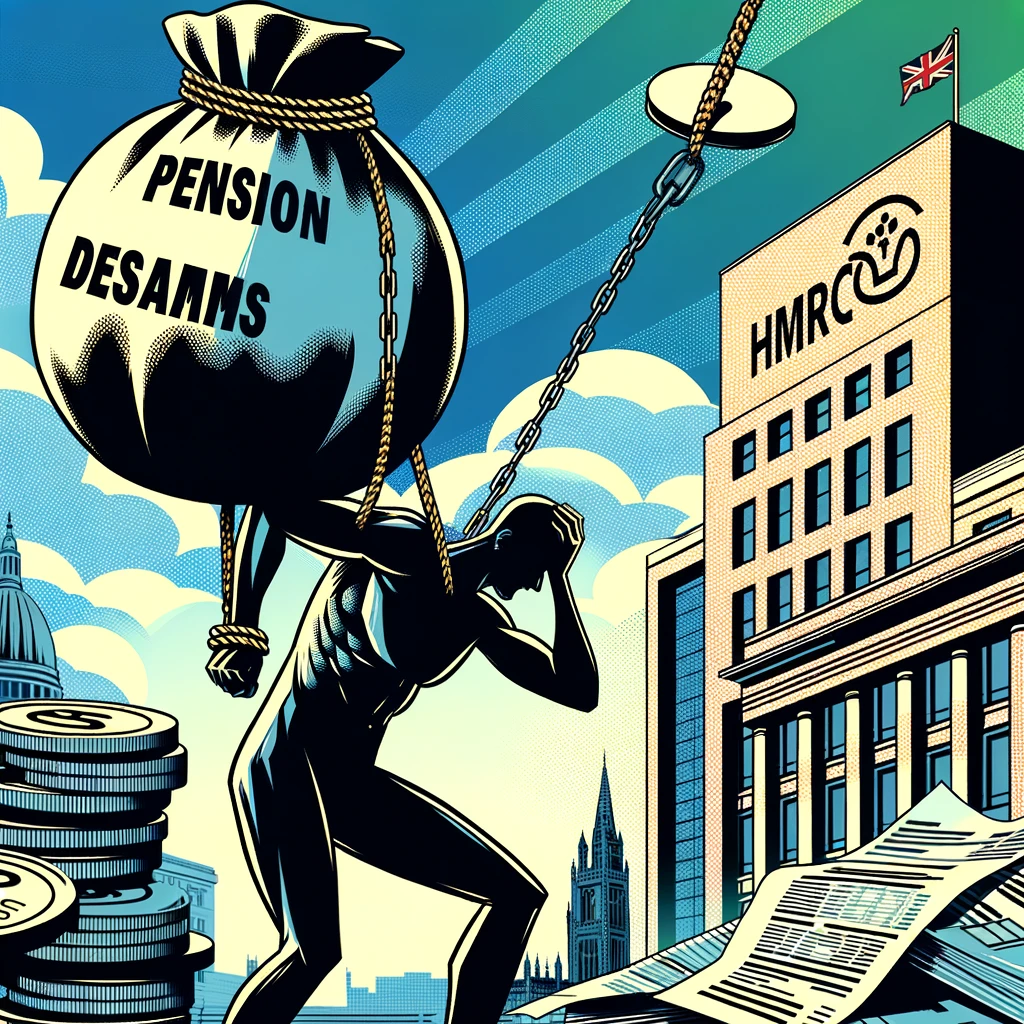
Pension liberation – Introduction
Recently, the All Parliamentary Group (APPG) on Investment Fraud has highlighted the severe emotional and financial toll on pension scam victims pursued by HM Revenue & Customs (HMRC).
The influential group of MPs shed light on the plight of individuals who, after losing significant portions of their life savings to fraud, faced relentless tax debt collection efforts by HMRC.
Of course, to any right-minded person, this is not cricket.
What was pension liberation?
Generally speaking, one cannot take funds from your pension prior to normal retirement age. This has been 55 for many years and will increase to 57 in a few years time.
Pension liberation was a way of getting at those funds ahead of time.
For high net worth individuals (HNWIs), this might be through an elaborate set piece of loans or transfers that cracked open the pension scheme like a coconut.
For others, the method of liberation was to transfer the accumulated pension funds into a pension scheme controlled by a friendly pension provider, invest in a high risk investment project (overseas hotels, teak plantations or magic beans) which provided a kick-back (10-20%) payable to the pensioner.
HMRC’s actions
HMRC’s actions are typical of HMRC.
Of course, sympathy for HNWIs who have used a scheme provider to bust their pension might quite rightly be in short supply.
But what about those with more meagre pension provision? Perhaps they needed their pension now. Not to buy Steve Webb’s famous Lambo… but simply to live.
Well, these individuals, after investing in said high risk investments, found they have lost their pension provision.
Some of these are the victims of miss-selling, the others the victims of pure fraud.
But HMRC’s response has pretty much been as follows:
“Yes, we know you have lost your life savings…Indeed, we are very sympathetic. However, there is the small matter of a 55% tax charge which we must impose on an authorised payment”
It is the very definition of kicking a man or woman when they’re down.
The APPG’s report
The APPG’s report, a result of comprehensive investigations and victim testimonials, paints a grim picture of the consequences of HMRC’s actions.
Victims who used these schemes set out how HMRC’s aggressive tax collection strategies pushed them to the brink, with some reporting suicidal tendencies as a result of the relentless pursuit.
One particularly harrowing account involved a victim who, after being stripped of his pension by fraudsters, found himself hounded by HMRC for £90,000 in back taxes.
The situation escalated when HMRC’s Field Force Unit inquired about the value of his possessions, such as his car, to assess his ability to settle the tax debt.
The report also touches on the wider impact of HMRC’s collection practices, noting the adverse effects on the mental and physical well-being of victims and their families, who lived in dread of receiving demanding letters from the tax office.
The APPG’s findings are backed by data from the Pensions Management Institute, which reveals that pension scams resulted in losses exceeding £26m between 2020 and 2022. The majority of these incidents involved “pension liberation fraud,” where victims are deceived into accessing their pensions prematurely and subsequently face hefty tax charges from HMRC.
HMRC’s response
In response, HMRC clarified its stance, stating that scam victims are not taxed on lost income if the scheme in question complies with tax legislation.
However, the department emphasized the legal responsibility of individuals to scrutinise any scheme carefully, warning that the allure of seemingly lucrative opportunities often belies substantial risks.
So, no response at all, really.
Tribunal challenge
Personally, I would recommend that anyone who receives any intervention on these matters, whether an individual or an adviser on behalf of a client, look very closely at the time limits.
My experience is that it is all too common that HMRC has sought to extend the discovery window in many cases citing a lack of reasonable care.
This should be robustly resisted.
Some time ago, we had such a case where we had to resort to the tribunal to resolve the matter, on a pro bono basis.
We won.
Of course, that is always pleasing.
However, this was particularly so because of the terrible circumstances of the case in which our client had his retirement savings cleared out having being caught up in a pension scam. The fact that he was the victim of fraud was accepted “unequivocally” by the tribunal.
It goes without saying that HMRC’s attempts to impose a penalty on someone in such a case does not feel like cricket.
Thankfully, the tribunal agreed with our argument that the Appellant had taken reasonable care and, as such, was not subject to a penalty.
Sadly, it was an unreported case.
In their judgement, the tribunal stated that:
“very few taxpayers having been provided with verbal or written advice on their financial affairs by those who hold themselves out to be experts would read the small print or make their own enquiries”
The SSAS practitioner in that particular case, PensionPractitioner, has many alleged victims and I understand HMRC had raised similar penalties.
Let’s hope they have been dealt with in a similar fashion.
In addition to this, I’ve had similar cases involving the general public to sports stars where we have managed to resolve before they came to a hearing.
As I say, in many cases, HMRC has been ‘remiss’ in issuing invalid discovery assessments.
Pension liberation – Conclusion
Like the loan charge, HMRC’s approach to pension liberation has become entrenched. Had it not become a political organisation, it would be able to see sense.
However, it cannot. It has long since been able to admit to any shortcomings – whether on individual cases or as to policy as a whole.
If you have any clients who are faced with these issues, I would recommend that you look closely at how HMRC has intervened. It may well be invalid.
If you need any assistance, let me know. I am more than happy to assist any such victim on a pro bono basis.
